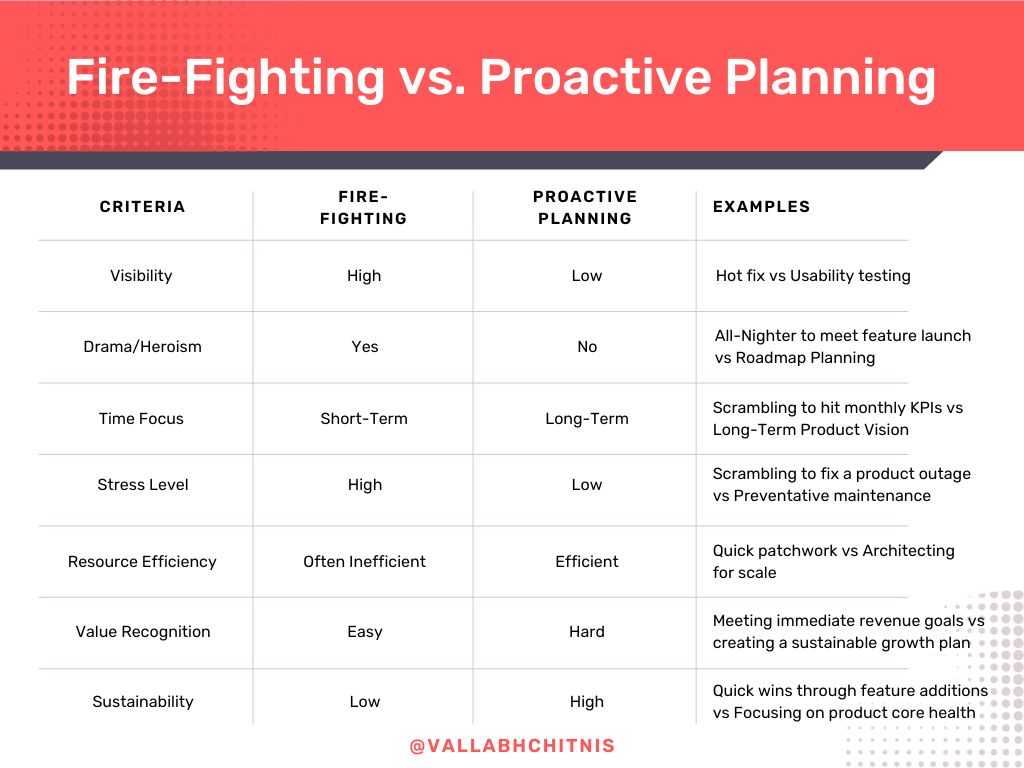Fire-Fighting: It is when dealing with urgent problems as they arise. It often leads to immediate, visible solutions.
Proactive Planning: It recognizes potential issues and prevents them from becoming urgent problems. It yields long-term stability.
When it comes to performance, “fire-fighting” often gets the limelight, while “proactive planning” stands in the shadows. But which genuinely deserves more applause?
Let us delve in with examples and some data to back it up!
- Fire Fighters vs. Fire Fighting Systems: Fire-fighters are often hailed as heroes when they put out fires. However, fire fighting systems, which prevent fires, go unnoticed.
- Emergency Doctors vs. General Practitioners: Emergency doctors get immediate praise for life-saving actions, but general practitioners who help us avoid emergencies don’t get the same recognition.
- According to a Harvard Business Review Study, companies focusing on proactive management enjoy 20% higher employee satisfaction and 21% more profitability.
Actionable Recommendations:
- Establish Clear Goals: Understand your long-term objectives. Align your team’s efforts accordingly.
- Measure What Matters: Use KPIs that gauge not just immediate output but long-term value as well.
- Celebrate the Unsung Heroes: Acknowledge those who prevent crises, not just those who solve them.
The inclination to value fire-fighting over proactive planning often stems from a culture that prizes the immediate and visible. For a balanced and efficient work environment, it is vital to recognize both the heroes and the architects. The aim isn’t just resolving crises but also preventing them.
Have you observed this trend in your organization or life?
Are you a team fire-fighter or proactive planner?
#OperationalExcellence #Operations